Swiss cheese plants, also known as Monstera deliciosa, are a popular choice among indoor plant enthusiasts. With their large, lush leaves and unique perforations, they add a tropical touch to any space. However, if you’re a new plant parent, you may be wondering about the best care practices for your Swiss cheese plant. One question that may come up is whether or not these plants prefer to be root bound.
Root boundness refers to the condition in which a plant’s roots have become too large for its current pot, causing them to become tightly packed and potentially suffocating the plant. While root boundness can be beneficial in some cases, it can also be detrimental to a plant’s growth and health. In this article, we’ll explore the pros and cons of root boundness in Swiss cheese plants and provide tips on how to determine if your plant is root bound and how to address it.
“It’s important to understand whether or not these plants prefer to be root bound to ensure you’re providing the right conditions for your Monstera’s growth, as detailed in our document on Monstera size.”
The Benefits of Root Boundness
At first glance, it may seem counterintuitive that being root bound could be beneficial for a plant. However, there are a few potential advantages to being root bound for Swiss cheese plants.
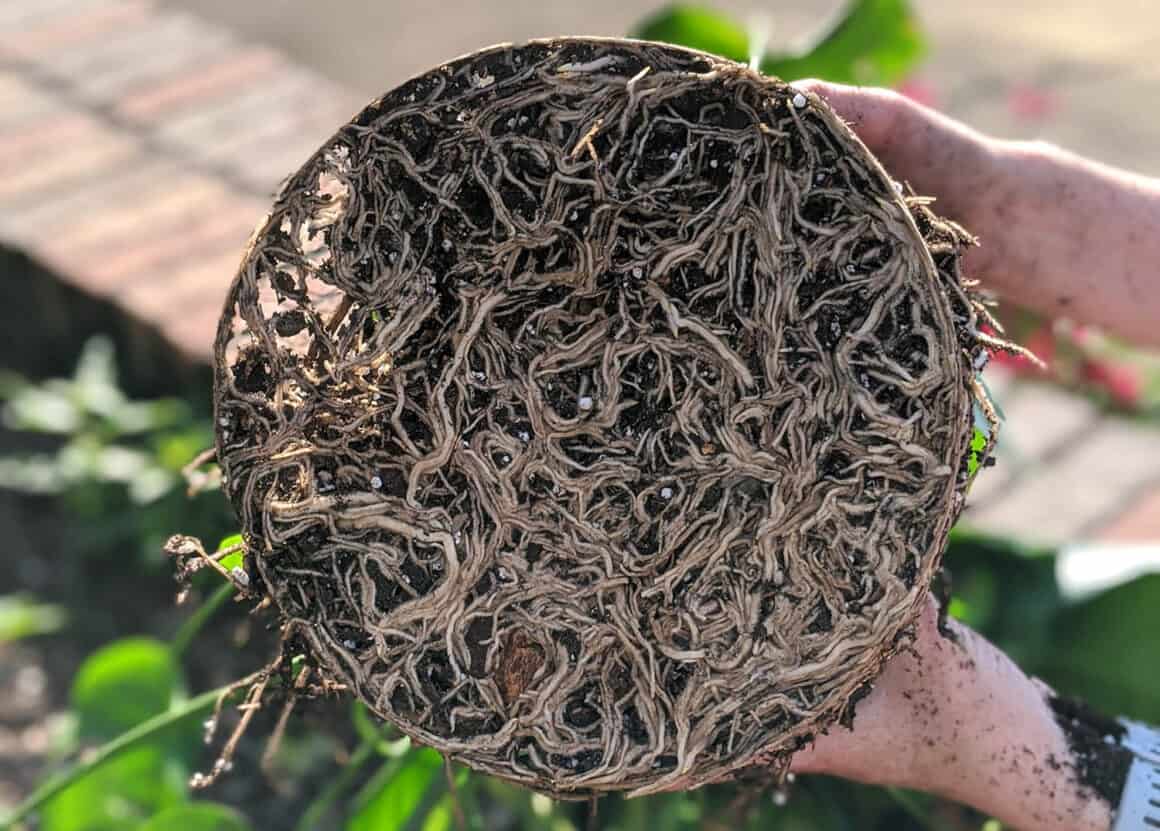
Increased Stability in Pot
One benefit of root boundness is that it can help to keep the plant stable in its pot. This is especially important for larger plants that may be prone to tipping over. The densely packed roots provide support for the plant, helping it to stay upright.
Improved Nutrient Uptake
Another potential benefit of root boundness is that it can lead to improved nutrient uptake. When roots become crowded and compact, they may be more efficient at absorbing the nutrients they need from the soil. This can lead to healthier, more vigorous growth.
Enhanced Flowering and Fruiting
In some cases, root bound plants may also experience enhanced flowering and fruiting. This is because the crowded roots may stimulate the plant to produce more flowers and fruit as a way to compensate for the limited space in the pot.
The Risks of Root Boundness
While there are some potential benefits to being root bound, it’s important to be aware of the risks as well.
Decreased Growth
One of the main drawbacks of root boundness is that it can lead to decreased growth. When roots become crowded and compact, they may be unable to access the nutrients and water they need to support the plant’s growth. This can result in stunted or slowed growth.
“Understanding the benefits and risks of root boundness is crucial for Monstera care, as our comprehensive care guide highlights.”
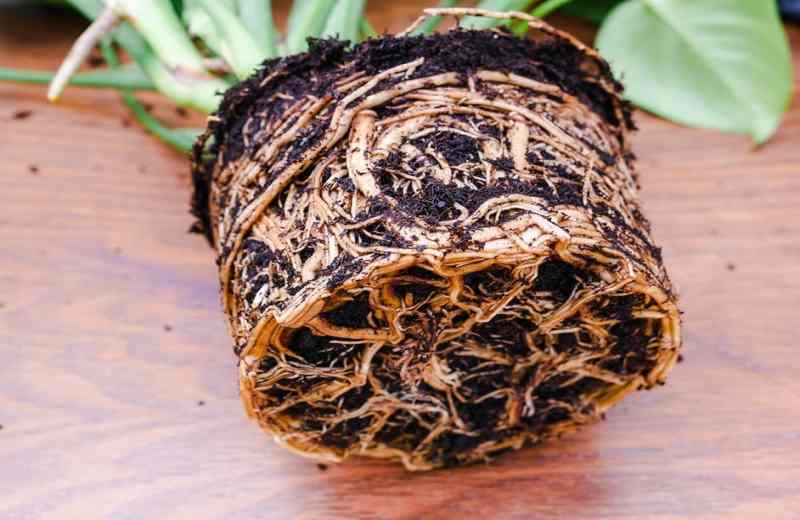
Poor Soil Aeration
Another risk of root boundness is that it can lead to poor soil aeration. When roots become densely packed, they may prevent air from circulating in the soil, which can lead to problems with decomposition and nutrient uptake.
Increased Susceptibility to Disease
Finally, root bound plants may be more susceptible to disease due to the cramped conditions. The crowded roots can create a breeding ground for pests and diseases, which can further damage the plant.
How to Determine if a Swiss Cheese Plant is Root Bound
If you suspect that your Swiss cheese plant may be root bound, there are a few signs to look for.
- Small Root Ball: One telltale sign of root boundness is a small root ball. If the roots of your plant are tightly packed and barely visible, it may be root bound.
- Circling Roots: Another sign of root boundness is the presence of circling roots. When roots become too crowded, they may start to grow in circles rather than outward. This can be a sign that the plant needs to be re-potted in a larger pot.
- Difficulty Removing Plant from Pot: If you have trouble removing the plant from its pot, this may be a sign that it’s root bound. The tightly packed roots may be preventing the plant from coming out easily.
To confirm that your plant is root bound, you can gently remove it from its pot and examine the roots. If you see a dense mass of roots that are tightly packed together and have little to no soil around them, it’s likely that your plant is root bound.
How to Address Root Boundness in Swiss Cheese Plants
If you’ve determined that your Swiss cheese plant is root bound, there are a few steps you can take to address the issue.
- Re-potting in a Larger Pot
One option is to re-pot your plant in a larger pot. This will give the roots more space to grow and spread out, which can help to alleviate the root boundness. When re-potting, be sure to use a pot that is at least two inches larger in diameter than the current pot.
- Pruning Roots and Re-potting in the Same Pot
If you don’t want to move your plant to a larger pot, you can also try pruning the roots and re-potting it in the same pot. To do this, gently remove the plant from its pot and use a sharp pair of scissors to carefully trim away any circling or damaged roots. Then, re-pot the plant in the same pot using fresh soil.
- Using a Soil Aerator Tool
Finally, you can try using a soil aerator tool to loosen the soil and roots. These tools, which can be found at most garden centers, have small, sharp prongs that can be used to gently loosen the soil and roots around the plant. This can help to improve soil aeration and give the roots more room to grow.
“For more detailed steps on how to address root boundness in Swiss Cheese Plants, refer to our document focused on healing and nurturing Monstera plants.”
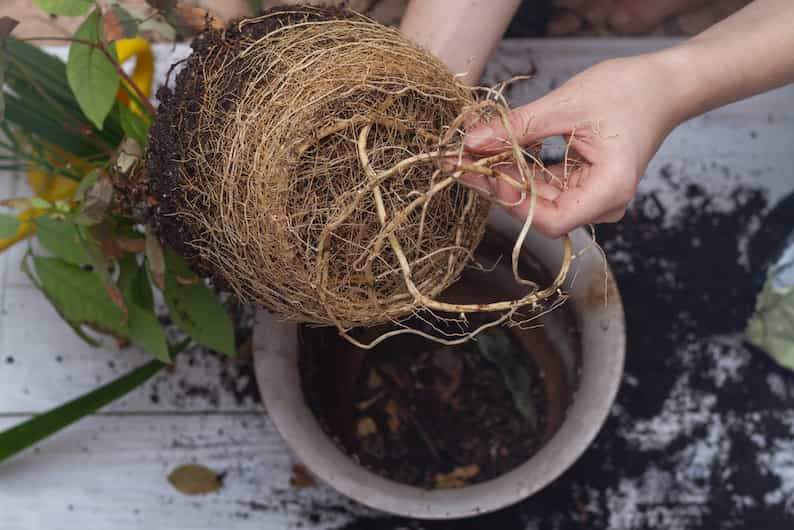
Where to buy monstera? Benefits from importing plants from Thailand
- Shipping: Door to door shipping, fast and safe with Dragon Courier
- Biodiversity: Thailand is known for its rich biodiversity, including a wide variety of aroid species. This diversity allows importers to access a broad range of unique and exotic aroid plants.
- Quality and Health of Plants: The suitable climate helps the plants grown here stay healthy and of high quality.
- Cost-Effectiveness: Due to favorable growing conditions and efficient production methods, Thai aroid plants can often be more cost-effective compared to those from other countries.
- Access to Hybrid Varieties: Thai growers are often involved in the development of new hybrid aroid varieties, offering unique plants that may not be available from other sources.
Monstera species are the most sought after by aroid plant lovers
Conclusion
In conclusion, root boundness can be both beneficial and detrimental for Swiss cheese plants. While it can provide increased stability and improved nutrient uptake, it can also lead to decreased growth, poor soil aeration, and increased susceptibility to disease. To determine if your plant is root bound, look for signs such as a small root ball, circling roots, and difficulty removing the plant from its pot. If your plant is root bound, you can try re-potting it in a larger pot, pruning the roots and re-potting in the same pot, or using a soil aerator tool to loosen the soil and roots. By addressing root boundness, you can help to ensure that your Swiss cheese plant stays healthy and thriving.
See also Top 10 Most Frequently Asked Questions About Swiss Cheese Plants

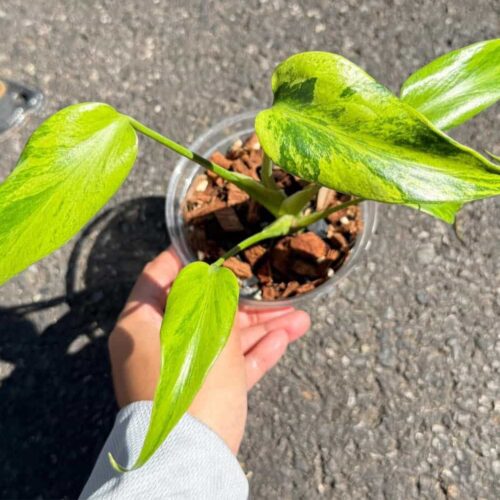
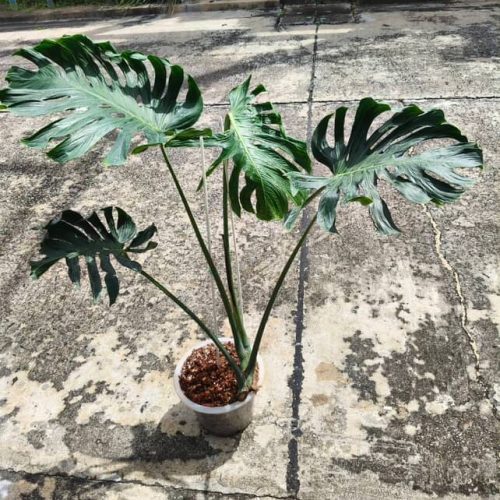
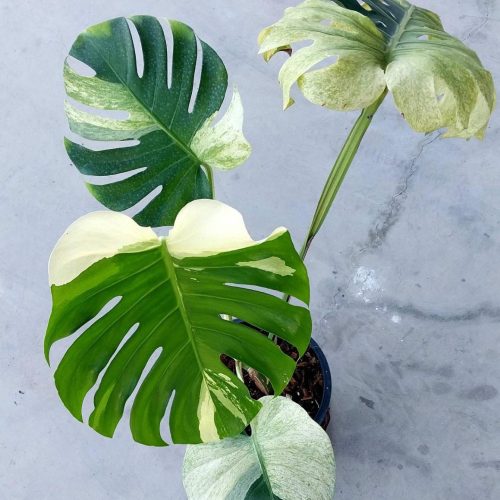


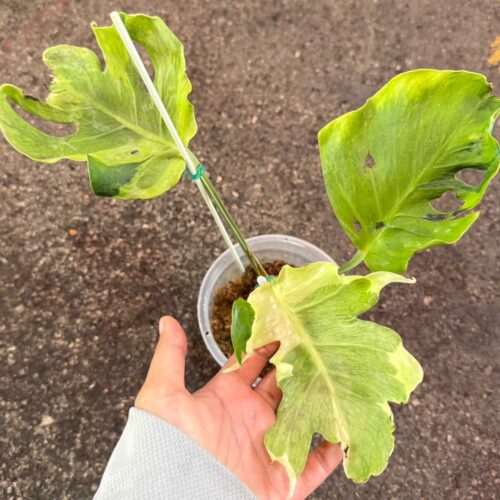
![12x Monstera Borsigiana Albo half leaves variegata [3-4 leaves]](https://greenboog.com/wp-content/uploads/2024/10/Monstera-Borsigiana-Albo-half-leaves-variegata-1-500x500.jpg)
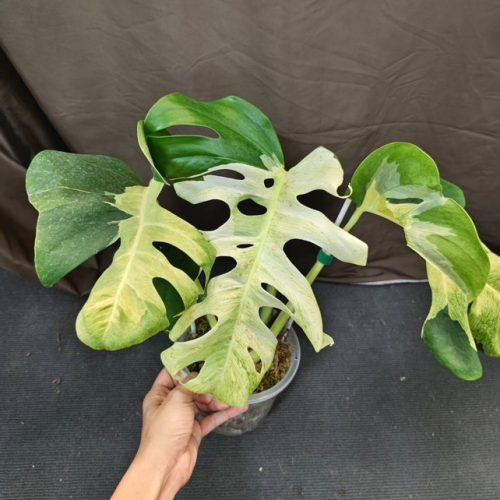

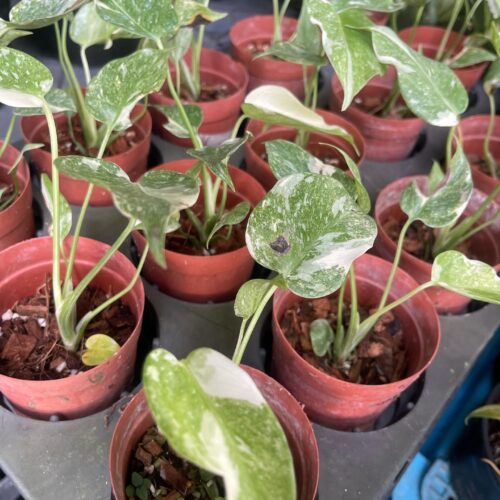
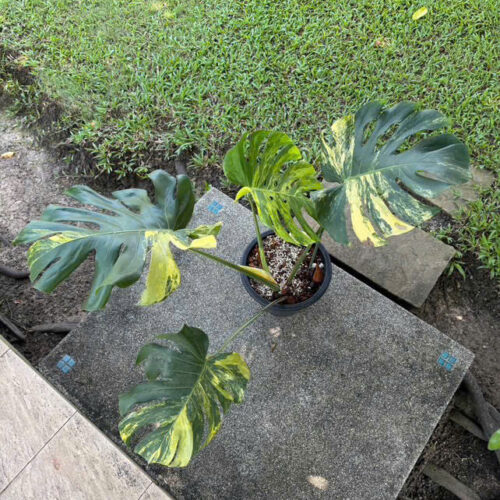
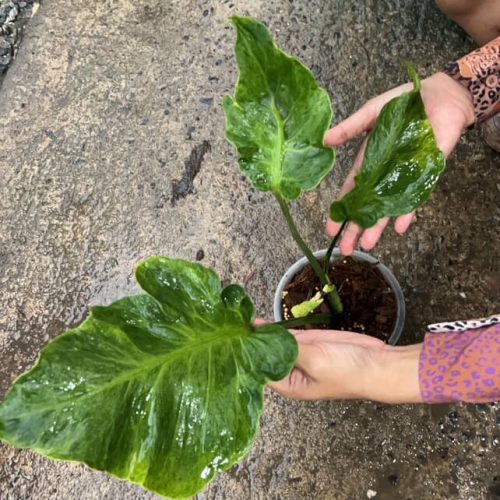
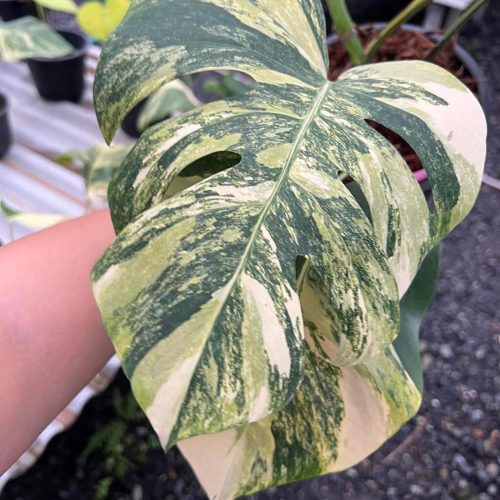
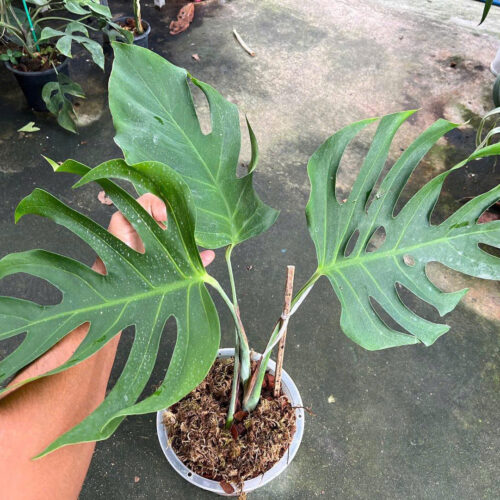
![10 Pots x Monstera Aurea Variegated / Mix Aurea tri color 3-4 leaves [well variegated]](https://greenboog.com/wp-content/uploads/2024/08/Monstera-Aurea-Tri-color-500x500.jpg)
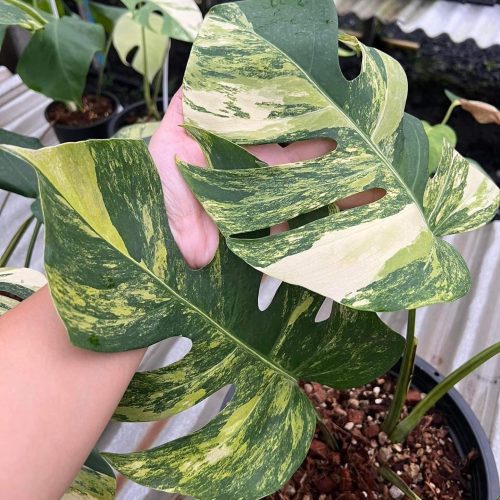
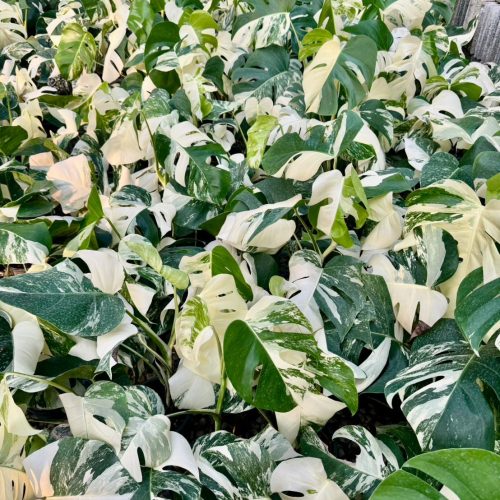
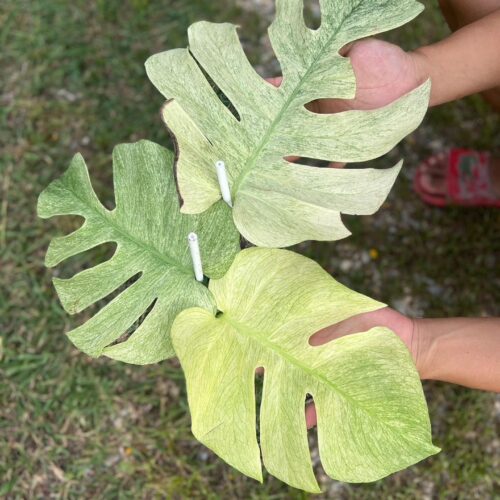
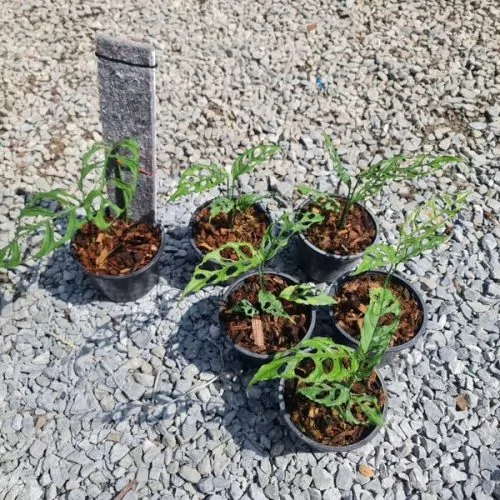
![[SALE] 10 Pots x Monstera Aurea Variegated 3-6 leaves [Medium size]](https://greenboog.com/wp-content/uploads/2025/01/Monstera-Aurea-variegated-4-6-leafs-500x482.jpg)
